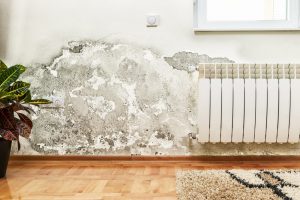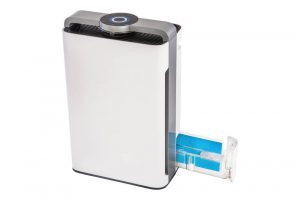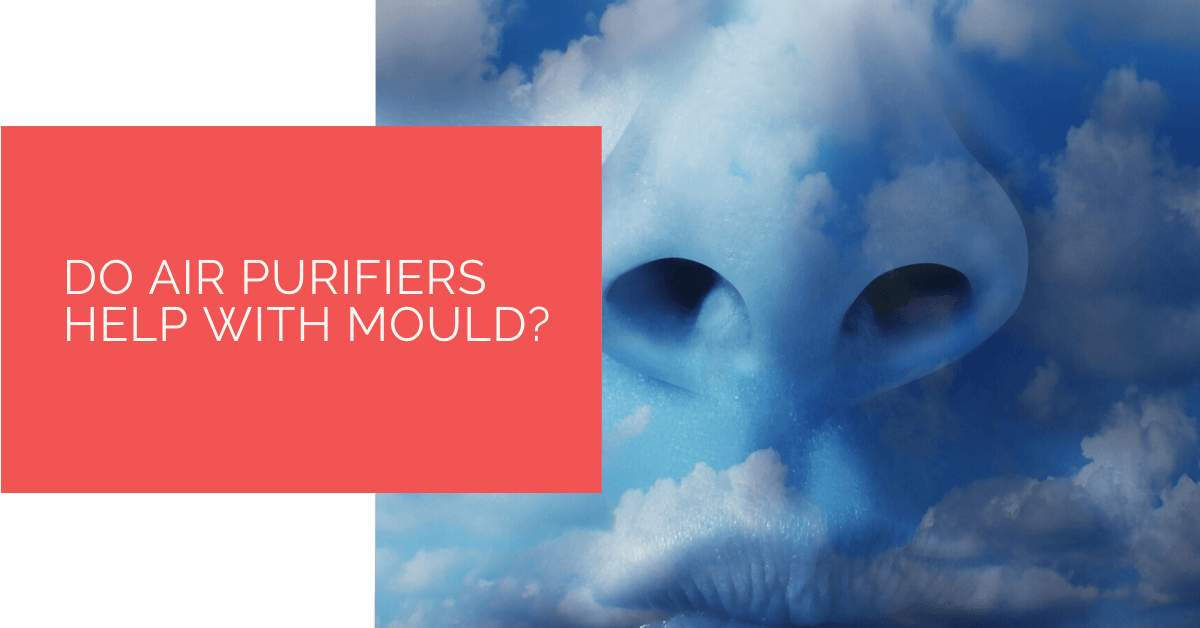Mould spores are everywhere. You cannot avoid them altogether. That said, in the context of our residential living, it is paramount that we pull all stops to keep mould at bay.
While the mould itself might not negatively impact your health, mould spores are notorious for causing allergic reactions among spore-sensitive individuals.
Furthermore, the risk of developing severe allergic reactions increases significantly with persistent exposure to high-levels spores concentration.
Keeping mould spores from your home is critical, and one of the best ways of reducing allergic reactions.
The big question is, will an air purifier help with mould? Well, herein, we will explore everything you need to know about the air purifiers and their ability to filter out mould spores. We will delve into how to effectively use an air purifier to keep your indoor air healthy and spores-free.
See out list of the best air purifiers and reviews here.
Contents
Key Takeaways
- Mould spores can negatively affect health, causing allergies, respiratory problems, and more, making it important to reduce their presence in your home.
- Not all air purifiers are effective against mould; you need one with True HEPA filters, UV-light feature, and activated carbon filter to deal with mould spores and odours.
- Air purifiers can reduce the concentration of mould spores in indoor air, but fixing the underlying moisture issues is essential to prevent mould growth.
What Is Mould?
 Mould represents a large and diverse number of fungal microbes. Their main distinguishing feature is their asexual reproduction through microscopic spores. Typically, the spores are coloured and form a dusty texture at the end of the hyphae, making the presence of fungus quite discernable. The lightweight spores are easy to disperse with wind draft, which is the main reason mould spores are so prevalent in our homes.
Mould represents a large and diverse number of fungal microbes. Their main distinguishing feature is their asexual reproduction through microscopic spores. Typically, the spores are coloured and form a dusty texture at the end of the hyphae, making the presence of fungus quite discernable. The lightweight spores are easy to disperse with wind draft, which is the main reason mould spores are so prevalent in our homes.
Mould causes the biodegradation of a wide variety of natural materials. As such, mould causes food spoilage and given the right conditions, it can cause property damage.
In nature, mould plays a vital role in the carbon cycle. However, when they occur indoors, their presence and effects are less than desirable.
Almost all strains of mould thrive in warm, damp, and dark places in your house. In a suitable environment, the spores attach to any organic matter and begin to break the biological matter down for their consumption. Left unabated, mould will reproduce profusely, until it finishes all the available organic matter around.
Some of the most common types of moulds found indoors include, Fusarium, Alternaria, Penicillium, Aspergillus Chaetomium, Stachybotrys, Mucor, and Cladosporium.
How Can Mould Affect Your Health?
Mould and especially the spores they produce can have devastating effects on our health. For instance, mould spores are known to cause allergy flares with symptoms being skin rashes, runny noses, coughing, and itchy red eyes. The spores also cause multiple chemical sensitivity flares in the form of rashes, hives, dizziness, nausea, memory lapses, and flu-like symptoms.
On the respiratory front, mould spores are known to cause respiratory issues and induce asthma problems accompanies with coughing, wheezing, and shortness of breath.
Unfortunately, long the long term exposure to mould spores will only reinforce these health issues, thereby affecting your quality of life in the long run. Additionally, long-term exposure to mould spores creates additional complications and even more severe health issues.
Long-term exposure to mould and their spores are known to cause:
- Neurotoxicity
- Hemosiderosis or pulmonary injury
- Cancer as is the case with aflatoxin, which is a carcinogen
- Renal, hepatic, and/or endocrine toxicities
- Immunologic and hematologic disorders
- Pulmonary fibrosis or hypersensitivity pneumonitis
- Cardiac, gastrointestinal and/or pregnancy issues
As you can appreciate, exposure to mould spores can have dire consequences on your health. While the mould in blue cheese makes for tantalising cheese, the mould in your house and their spores lurking in the air and on surfaces should not be taken lightly.
Do Air Purifiers Help with Mould?
While it is possible for air purifiers to help deal with mould, only a particular type of air purifiers has this capability. A run-of-the-mill air purifier will not help you deal with mould spores as effectively as a high-quality air purifier.
 An air purifier intended to get rid of mould spores must have True HEPA filters (find out more about True HEPA filters here). A True HEPA filter traps the microscopic spores within the filter, preventing them from re-circulating in the air. When you run the filter long enough, the filtering system will reduce the spores concentration quite significantly, which in turn helps to improve your indoor air quality.
An air purifier intended to get rid of mould spores must have True HEPA filters (find out more about True HEPA filters here). A True HEPA filter traps the microscopic spores within the filter, preventing them from re-circulating in the air. When you run the filter long enough, the filtering system will reduce the spores concentration quite significantly, which in turn helps to improve your indoor air quality.
Additionally, the air purifier should also have a germicidal UV-light feature. While the True HEPA filter will trap the spores, it cannot kill them or stop their reproduction potential. That’s where the UV-light feature comes in handy. It makes the spores ‘impotent’ and diminishes the ability of mould to grow in your house.
Finally, a good air purifier should come with an activated carbon filter. It is not the presence of spores that is the only nuisance you have to deal with. The odour that accompanies mould growth is astonishingly repugnant. More often than not, the mould smell is the first thing we notice, before even seeing the mould. The activated carbon will get rid of the odour, leaving you with fresh air.
With that in mind, however, you need to note that even the best air purifier will not get rid of mould that is actively growing. To stem mould growth, you need to fix the underlying issues in the first place for example, removing damp. This means you should get rid of the conducive conditions that allow mould to grow and thrive, i.e., the warm, damp, and dark environments.
Heat Pump Source: Reliable Heating and Cooling Solutions
At Heat Pump Source, we take pride in our unwavering commitment to serving the UK with top-tier HVAC solutions. From the efficiency of heat pumps and the cool relief of air conditioning to the warmth of boilers, radiators, and underfloor heating, our dedicated team is always at the forefront of innovation. We understand the unique needs of every household and business, and we strive to provide dependable health and cooling products and services that are tailored just for you. Ensuring your comfort and satisfaction is our utmost priority. Whether you have questions, need guidance, or require support, we’re always here to assist. Please don’t hesitate to contact us; we’re eager to be of service.
A Final Word
There are no feasible means of keeping all mould spores away from your home. As soon as you open the door or the window to let some fresh air in, you give mould spores access to your home. The goal of air purifiers is to reduce the concentration of mould spores in the air as much as possible.
Installing a high-quality air purifier in your home will reduce the concentration of air spores in your indoor air. Importantly, an air purifier can kill the spores it traps, negating their ability to reproduce.
About the Author
At Heat Pump Source, our articles are the product of a collaborative effort among a team of highly skilled HVAC experts. Our dedicated professionals, hailing from diverse backgrounds in heating, ventilation, air conditioning, and refrigeration, contribute their extensive knowledge and experience to every piece of content. This multidisciplinary approach ensures comprehensive coverage. Our commitment is to deliver authoritative, reliable, and tailored advice to meet the unique needs of every household and business across the UK.

